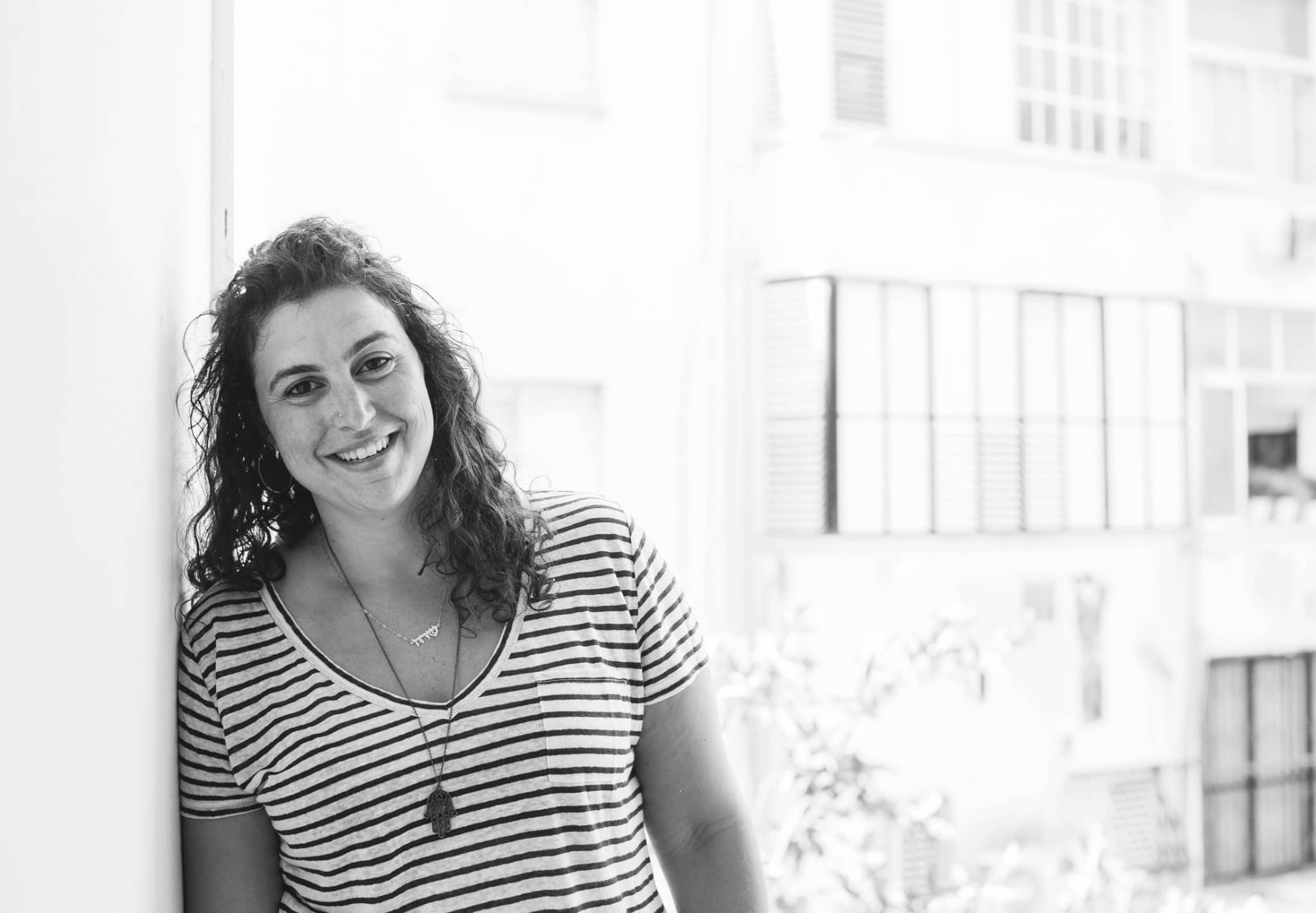March is the month of International Women’s Day and the Jewish holiday of Purim, which features inspiring and fearless feminist role models. We’re celebrating with a series of conversations with Jewish ladies who are building empowering and supportive women-focused communities.
Check out all featured women here.

Tell us the story behind the community you’re building.
There is an ancient Jewish tradition of gathering women monthly around the new moon: Rosh Chodesh. At The Well is bringing it back.
We’re inspiring, coaching, and supporting women to come together in living rooms around the world to decrease rates of loneliness and depression, to help women teach each other about the rad miracle of the female body, and to remind ourselves of our matriarchal ancestors.
We want to inspire a network of peers teaching each other what they know and relearning all the information about whole and healthy living that we’ve lost along the way. We want to be known for doing our growth, our spiritual work, and our learning in completely supported communities. That means connecting to each other, and lifting each other up to live our most whole lives.
Describe your leadership style.
I like to think of myself as the caboose. There’s a serious train moving, and I’m the slow burning fire that keeps us on course.
I was a lacrosse goalkeeper in college. When everything failed and there was a shot on goal, I was the person they depended on to come up with a big play out of nowhere. I work hard and try to lift my team up around me.
Share the most challenging moment you’ve had while building this community. When were you closest to quitting? How did you pull yourself back up?
It has to be fundraising. It’s hard work, it takes a long time, and you get rejected. Unless you have another income to sustain you, and you’re super honed in on your mission, it ain’t getting done. I believe in the light At The Well can bring to the world. I believe I can energize this vision into reality. Plus, I post a lot of affirming quotes from badass women around my desk:
I’ve come to believe that each of us has a personal calling that’s as unique as a fingerprint – and that the best way to succeed is to discover what you love and then find a way to offer it to others in the form of service, working hard, and also allowing the energy of the universe to lead you.
– Oprah Winfrey
Share the most empowering instance of women lifting up other women that you’ve witnessed.
I was really inspired by the women who worked in the Obama administration. When one woman would speak, the next one would repeat what the first woman had just said, affirming the previous woman’s point, and then state her own. I LOVE this. So selfless and so team-oriented. These practices are small, but they help us go far.
What does being a Jewish woman mean to you?
To be a midwife of babies and causes, to know my body, to teach and help others, and to stand up to injustice.
The story behind why Rosh Chodesh is a women’s holiday comes from Midrash (Rabbinic interpretation) on the story of the Golden Calf. While Moses was up at Mt. Sinai, the Israelites got impatient and used their jewelry to build a golden calf – a false idol. The rabbis say all this happened on the new moon and that the women refused to give over their jewelry. For this, women are known as the “keepers of the faith.”
For me, being a Jewish woman means stepping up and making it happen. (But, guys, we need you too.)
What advice do you have for other women who are looking for supportive communities to build or join?
Start a Well Circle! This is our version of the Rosh Chodesh ritual — monthly women’s gatherings that happen on the new moon.
Favorite Jewish holiday? Least favorite Jewish holiday?
Rosh Chodesh, obviously! The very first commandment God gives the Jewish people is to mark and observe the moon. That’s where we get the importance of Rosh Chodesh. Through Midrash, we learn Rosh Chodesh becomes a holiday elevated for and by women. It’s the Jewish holiday with the least amount of law or description about how to observe it in the entire Jewish practice. That means there’s space for lots of interpretations and all kinds of ways to practice.
I feel like a rebel because I started eating rice on Passover before the Conservative movement gave their own stamp of approval. Also, I am not so sure about the whole bris thing.
Thank you for visiting Arq!
Arq is no longer publishing new content. We hope you'll enjoy our archived posts.